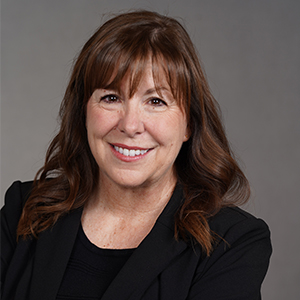Jonathan Corr served as president and chief executive officer at Ellie Mae before announcing his retirement in September after the company was acquired by Intercontinental Exchange. Joe Tyrrell, Ellie Mae’s chief operating officer, succeeded Corr as president of ICE. HousingWire sat down with Corr and Tyrrell for an exclusive look back at the changes in the company and in the mortgage industry during the last two decades, as well as what’s ahead.
Ellie Mae’s North Star has always been “automating everything that is automatable.” But when Jonathan Corr joined the company 18 years ago, bringing that vision to reality was still a long way off. At that time, Corr and founder Sig Anderman were distributing brand-new origination software to mortgage brokers on CDs, which they gave away for free for the first year.
This was before the financial crisis, Dodd-Frank or QM, and brokers weren’t concerned about compliance or security, Corr said. They often used disconnected desktop software and shared the licenses between them.
“We were able to aggressively come into the industry and give software away in the early days on CDs for free for the first year. It was free, but even so it was very difficult to do, because people were used to what they were already using, and they didn’t want to change — even when that meant going from a modest fee to free,” Corr said.
At the time, the mortgage industry was very fragmented, split between mortgage bankers, community banks, small divisions of large companies or small private companies. In addition, the brokers who dominated the space were mainly entrepreneurs who ran their shops as a lifestyle business: Investing in software seemed like a luxury.
That all changed, of course, after the meltdown and the Great Recession. But for Ellie Mae, the fragmentation presented a chance to bring innovation into the mortgage process.
“We saw the internet and the technology around it as a vehicle to help drive a better experience all the way around — for consumers, brokers and investors. We saw a tremendous opportunity to take friction out of the process and move from a disconnected, paper-laden way to a more consumer-friendly way,” Corr said.
“We now sit in a world where the market has consolidated quite a bit. The level of investment you have to make is at a totally different level,” Corr said. “I don’t think you could do today what we did when we first came to market with Encompass. I think it’s incredibly hard for someone to come in and make a real entry into this market around an origination platform.
“They can spend a lot of money and do it, but does the return justify the investment, given big competitors like us or Black Knight? You see a lot of companies innovating around the edges, and I think a lot of the opportunity now lies around closing,” Corr said.
The journey from selling to brokers in those early days to building out the Encompass platform that is now used to process about 40% of all mortgages took a strong vision and some lucky breaks, Corr said. He credits Anderman for setting the example of being adaptable as they sought to serve their customers — something he constantly practiced at Ellie Mae.
“We focused on execution — making customers successful, supporting our teammates and empowering them to go off and do the right thing for customers,” Corr said. “From the very beginning — going from a website to having visions of being B2B platform, then the transition from being on-premise with brokers to off-premise with lenders, then through the meltdown and our investment in compliance, then shifting to a SAAS world — we’ve adapted all along the way and responded to what our customers and partners needed.”
A cultural legacy
Tyrrell, who served as vice president of strategic relationships at Ellie Mae from 2001 to 2005, then returned to the company in 2010, said Ellie Mae was fortunate to have an “incredible founder” in Anderman and a great leader in Corr.
“Jonathan came in to really run the company and created a foundation of trust with customers,” Tyrrell said. “One thing that’s core to our culture is that everything at Ellie is about the customer. How are we helping the lender be more effective, more profitable? That was the foundation Sig put in place and the driver Jonathan ensured was part of every decision we made. Jonathan brought in that focus on innovation.”
Looking back, Corr said he appreciates the “fantastic partnership” he had with Anderman. Although serving their customers through automation was the ultimate goal, the company culture they built along the way is what Corr considers his lasting legacy.
“We created an incredible culture, a place people loved to work,” Corr said. “People are passionate about what they’re doing — they believe they’re making a huge change in the industry. I’ve seen that evolution in the industry and that is remarkable, but the fact that we’ve enabled so many teammates to be part of that is what’s special.
Corr said making customers successful has been its own reward, but seeing team members grow with the company and realize their career goals has also been exciting. It wasn’t all roses, of course. Corr said one of the lessons the leadership team learned was that “what had made you successful up to that point was not going to make you successful going forward.” That meant delegating things they were already experts at and trusting the people they brought on.
“In the end, it’s all about people and enabling folks to do the best they can,” Corr said. “Sometimes they will fail, and that’s ok. Ideally, they don’t make a mistake more than once.
“You’ll never have unlimited resources. You have to think through things with a certain level of analysis, and then execute. Make it happen, doing the best you can with what you have at that moment in time,” Corr said.
What’s next
Automating the mortgage process is far from done and the current high volume of originations makes automation even more important. Tyrrell said lenders need “massive efficiencies” to deal with loan volume and automation should be providing them with measurable benefits, especially shrinking days off the traditional mortgage timeline.
“There is a lot of automation available today but we’re building on the next level of that,” Tyrrell said. “It’s still a process dependent on forms and documents, and we want to shift to a task-oriented, data-driven automation platform.”
Tyrrell pointed to Ellie’s launch of a task-based version of Encompass and the company’s recent acquisition of Capsilon as examples of leveraging automation to give lenders an immediate lift in production. Being acquired by ICE is a huge step forward, Tyrrell said, as it creates the opportunity to realize almost straight-through processing, from consumers applying for a loan on an app to eReporting a note and registering it.
“That’s what a digital mortgage is all about — the profitability of the lender. They need a process with less errors and one that relys less on adding more and more people when they grow,” Tyrrell said.
What’s next for Corr? He’ll be serving as an advisor to Tyrrell and his team through the first quarter of 2021. After that, he said he’s looking forward to working on passion projects, which may include serving on boards or working with nonprofits. But years of strategizing toward Ellie’s ultimate goal of automation have left their mark: Even when Corr is looking at the past he sees the future that is coming.
“It astounds me how far we’ve come,” Corr said. “In the end, this could be a billion-dollar revenue year for Ellie. That’s an awfully long way from $5 million in revenue. And It could be we do 50% of loans in the industry (on Encompass).
“It boggles my mind and humbles me to be in the middle of this growth and have the privilege to work with so many great people and get to this place. What’s exciting is that with ICE, in the next three to five years, we’ll accelerate even more.”






